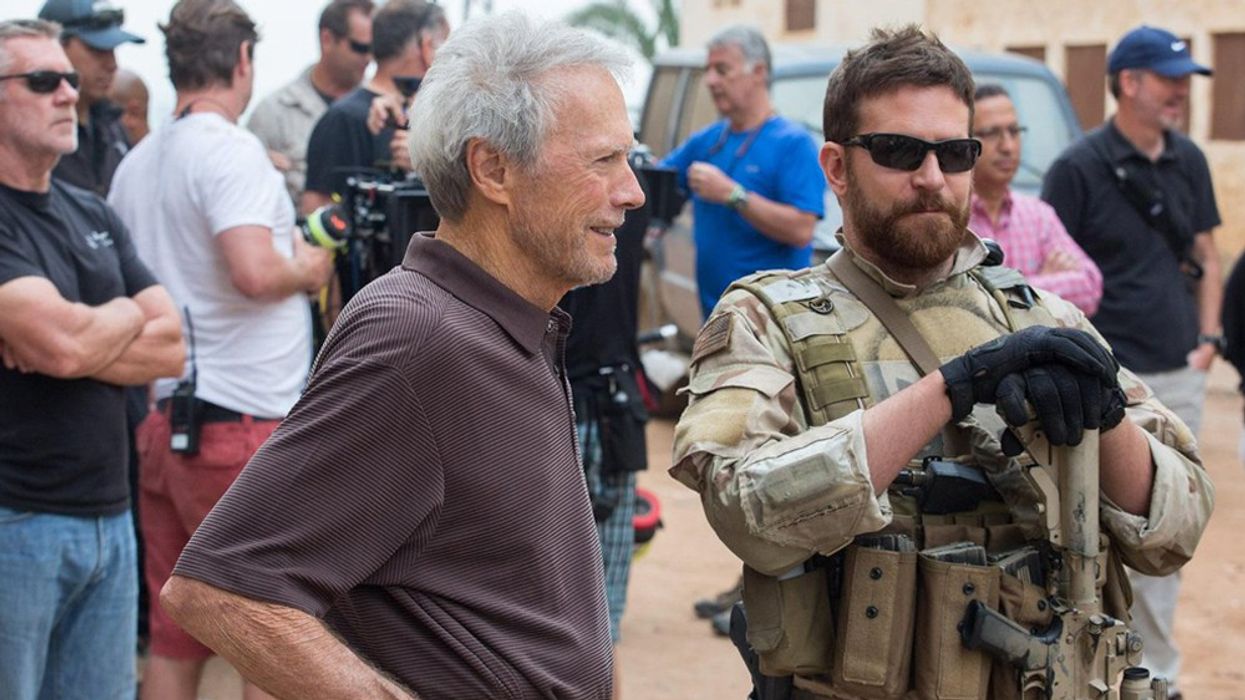First off, what a badass. How great would it have been to part of Clint Eastwood's first ever pitch meeting. Do you think it was as simple as him walking in and saying, "Hello, my name is Clint Eastwood--" before getting being interrupted by a studio executive blurting out, "Wait, your name is Clint Eastwood? That's fucking awesome. Here's some money, we'll see you in 90-days."
Clint Eastwood has built a legendary filmmaking career over the last five decades. Not only as a prolific actor, but an auteur behind the camera. The film industry icon turned 90 years-old today and No Film School is celebrating his career by looking back at the ten best films he's directed.
Sully (2016)
The allegory navigated the true story of Chesley "Sully" Sullenberger, an American pilot who became a hero after landing his damaged plane on the Hudson River in order to save the flight's passengers and crew. Shot by cinematographer Tom Stern on the IMAX’s version of the ARRI Alexa 65, US Airways flight 1549 is now known as the "Miracle on the Hudson."
Mystic River (2003)
If you haven't scene this film yet, book it in your queue. Mystic River follows the shattered lives of three men who were childhood friends after a family tragedy hits home. Both Sean Penn and Tim Robbins won an Oscar for their performances and Eastwood was nominated for directing. It's one of Penn's best performances ever. He could probably thank Eastwood for that.
The Bridges of Madison County (1995)
The love story follows a photographer on assignment falls for a housewife, whose husband and children are away on a trip. It's a film that Eastwood not only starred in alongside Meryl Streep, but directed as well. Cinematographer Jack Green was behind the lens, who's worked on several Eastwood projects including The Rookie and Unforgiven.
Flags of Our Fathers (2006)
2006 was a big year for Clint Eastwood. He took on the incredible task of directing two separate films around the Battle Of Iwo Jima in World War II. The first being Flags of Our Fathers, which told the story from the American point of view, and the second, Letters from Iwo Jima, told the story from the Japanese viewpoint. Eastwood mainly used the same crew for both films, and if you're in a historical mood, both are worth watching back to back.
Letters From Iwo Jima (2006)
The biggest difference between Letters From Iwo Jima and Flags of Our Fathers is the story approach. Flags of Our Fathers is more reconcilable to Western audiences, telling the story through the eyes of a handful of characters. Letters from Iwo Jima looks at it from a wider scope, detailing the entire Japanese army coming to terms with eminent defeat.
Gran Torino (2008)
Gran Torino navigates the trouble waters of American life, focusing on Walt Kowalski, a recently widowed Korean War veteran alienated from his family and angry at the world. When his neighbor gets caught stealing his Ford Gran Torino, Walt cold, outer shell starts to crumble as he develops a relationship with the boy and his family.
The Outlaw Josey Wales (1976)
"Dyin ain't much of a livin' boy." Do you need much more than that? Penned by the great Phillip Kaufman, and starring Eastwood as the titular anti-hero, this brutal 'late western' shoots to kill and there is just no other way to put it. It's a violent, angry film focused on retribution. Some of the themes Eastwood works out in later films make their start here.
Million Dollar Baby (2004)
Eastwood directs himself again, as well as Hilary Swank, this time leading her to an Oscar win, as well as one for himself as director and for the film as best picture. The story focuses on a female boxer who convinces a grouchy old pro to be her coach and trainer. Tragedy strikes just as her career takes off, and the film becomes increasingly dark, but at the same time strangely uplifting. There is a darkness and simplicity to the film, and it's another example of how well Eastwood even as the years piled up, could adjust to different types of stories about such different types of characters. His ability to capture their humanity is undeniable.
American Sniper (2014)
Eastwood tackles the true story of sniper Chris Kyle, his tours of duty but more specifically his struggle to adapt to a normal life. There are powerful themes connecting PTSD, and what happens to the men and women who've seen this level of violence. In his chameleon-like manner as a filmmaker, Eastwood slips audiences into another character's experience and whatever you thought going into it, it may challenge some of your assumptions.
Unforgiven (1992)
Despite many excellent films that had nothing to do with the western genre, Clint Eastwood will always best be associated with it. That's why it's hard not to save the best for last here and single out Unforgiven for its excellence even in the midst of an excellent career. It's a 'one last job' story, where the retired gunman, Bill Munny (Eastwood), is looking to hang it up but get's sucked into a quest for vengeance against a more established form of evil. But this story has all the hallmarks of a great 'late western', covering the ideas of how legends are created, perpetuated, and how in reality they are simply a blood-soaked misery.














